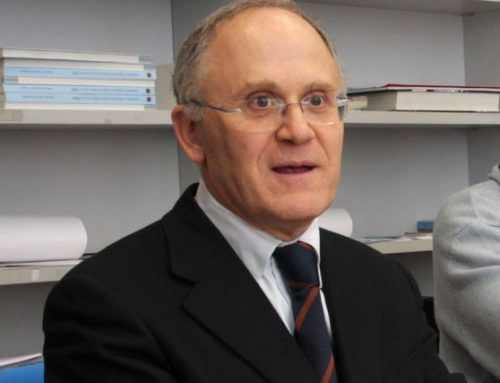On the afternoon of March 12, news agencies broke a sensational news story for doctors, psychologists, educators and parents. Insiders have grasped its importance. Parents and some educators may not. That’s why it’s worth taking it back: The UK’s National Health Service (NHS) has blocked “gender identity clinics” from prescribing puberty blockers to children and adolescents diagnosed as having gender dysphoria.
Significantly, the UK government hailed the “historic decision” by health authorities, saying it would help ensure that treatment is based on scientific evidence and in the best interests of the child.
In the words of the government spokesman, there is an unconcealed criticism of the superficiality with which the previous choices have been made, the result not of real science, but of gender ideology and the affairs of some doctors involved in procedures for the change of sexual appearance (biological sex fortunately cannot be changed). A few days ago the WPATH scandal emerged, following a journalistic investigation, which confirmed, if it were needed, the total lack of scientific evidence and the lack of respect for the limited capacity for informed consent by young patients, sometimes suffering from mental illness.
Similar abuses had been dramatically denounced by Yarden Silveira, a patient who underwent sexual transition and died at the age of 23 from complications, but not before spreading a heavy j’accuse against the Californian and New York market of gender change.
From now on, girls and boys with gender dysphoria in the UK will be supported by paediatricians, child neuropsychiatrists and neurodiversity experts, with a holistic approach to care.
According to gender theories, the materiality of sex does not exist, sexual identity is the result only of personal choice, which can contradict biological sex and which can eventually change over time, depending on the context and the psychophysical “well-being” of the person.
Children are invited to explore their own orientations and, in case of doubts about their identity, they should be helped (affirmative therapy) to get out of the bodily cage that prevents them from being what they would like. Yet there are no studies showing that affirmative therapy works and promotes the well-being of boys and girls who are uncomfortable with their biological identity. Nevertheless, gender has also conquered the World Health Organization, which has been concerned with producing substantial fact sheets for sex education in Europe, aiming at a reform of schools that begins in kindergarten and ends at university. Alias careers are just one example of how the topic has now penetrated our daily lives. For a few days now, alias careers have also been regulated by the Municipality of Milan. All employees will be able to request that their badge, office door name, or email address be appropriate to their gender identity. Propaganda increases its pressure. Unable to change reality, he strives to change the meaning of words.
Does gender dysphoria exist? Maybe yes, probably yes, but certainly not in the dimensions in which it seems to spread by pandering to gender theories. The risk, in fact, is that the propaganda of gender fluidity increases psychic distress and multiplies it, rather than solving it.
On 24 February, Susanna Tamaro wrote a beautiful article in the Corriere della Sera, in which the well-known writer from Trieste speaks of herself as a “child in the wrong body”. The moment of identity confusion was then resolved without problems in growth and confrontation.
This is exactly what Jean Piaget, the great Swiss psychologist and educationalist who died in 1980, taught. According to Piaget, the cognitive development of the child depends on the interaction with the surrounding reality, from which he acquires useful information for practical knowledge, in a process of continuous construction. Piaget believed that children create or construct their knowledge through interactions with the physical and social worlds, and these constructions form the foundation of evolutionary change.
The comparison with the paternal and maternal models allows the child, according to Piaget, to overcome the phase of sexual ambiguity, generally recognizing himself in the sexual identity corresponding to the biological sex.
The problem is that today ideology is preferred to scientific evidence and that gender ideology has transformed parental models into stereotypes.
Gender, in fact, aims at the deconstruction of stereotypes, connoting with this derogatory term even the most natural tendencies, such as those to fatherhood and motherhood, and aims at the construction of a new ethics, where the absurdity of the man who becomes pregnant or the one who breastfeeds are passed off as normality.
Only the Pope has remained to shout that these are aberrations, of “ideological colonization”, in the company of some historical feminists, such as Marina Terragni, who are fighting an all-female battle against the indistinct fluidity of gender.
Let’s hope that the British rethinking is the beginning of the end for gender drunkenness and that it can help shed light on what is still happening in Florence, in the Careggi Hospital.
Gian Luigi Gigli, Past President FIAMC
Published on
Home | La Vita Cattolica






